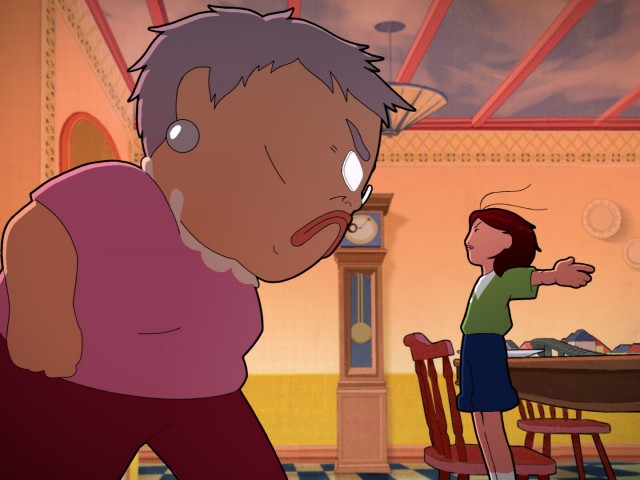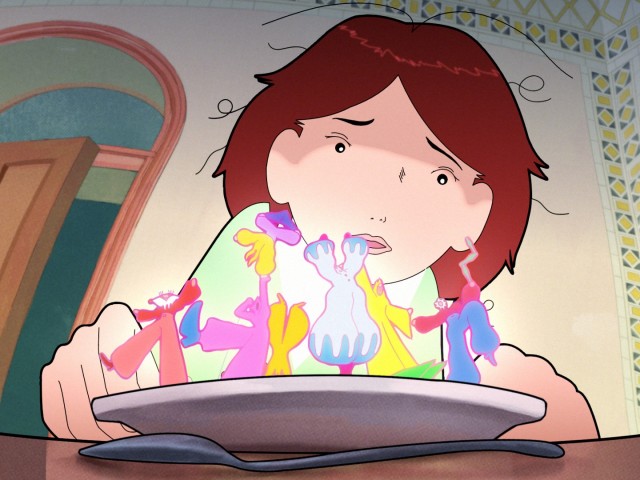Acrobats is a beautifully crafted animated short that explores the complex emotions surrounding coming out within a conservative environment. Poignantly capturing both the risks and the liberating joy of self-acceptance, the film centers on Lili, a young woman who struggles to express her true self. Until she finds her feelings personified through a troupe of vibrant acrobats, who emerge to perform her unspoken truths.
The concept is strong from the start, leveraging 3D animation to create dynamic, daring shots while maintaining a classic 2D look that enhances its timeless visual appeal. Acrobats carries subtle yet effective nods to Studio Ghibli, especially in the character of the older woman. The shot where the protagonist confronts her feels both powerful and pivotal, serving as a defining moment in the emotional narrative. Lili is, in essence, writing her own story.

This moment of confrontation makes for a pivotal scene in the narrative of Acrobats
The metaphor of the acrobats is especially powerful: they are the girl’s subconscious emotions, not just emerging, but exploding from her mouth with irrepressible force. They move freely with an exuberance that reflects the joy and relief of coming out, contrasting sharply with the rigid, static world Lili’s father has built around his train. “They lead Lili to free herself from societal expectations”, the directors explain, describing the acrobats as “an unrestrained reflection of herself” that drives her to take action. With this, Acrobats’ message is clear, but it’s subtle enough to invite empathy not only for the act of coming out but for the universal experience of feeling different within one’s own family.
Reflecting on that message, the directors note that “dialogue is at the heart of the story” – a strange statement when you consider that no words can come out of Lili’s mouth. However, this is where “animation conveys what no other medium could”, as here they can portray these emotions literally spilling out their protagonist’s mouth. “Previously hidden by shame, they now emphatically announce the joy of being out and the unstoppable force of being oneself”, the filmmakers state. Adding that they used animation as “the sole tool of language: no dialogue, just three family members trying to understand each other and the unspoken thing in the center of the table”.

By highlighting the “benefits of such an act of courage”, the team behind Acrobats hope to present a message of “hope”.
One production detail I particularly appreciated was the use of the 4:3 aspect ratio to symbolize Lili’s feelings of entrapment and suffocation. Later transitioning to a wider frame to signify her liberation, it’s a subtle but powerful choice, adding depth to the narrative and visually underscoring her journey toward self-embrace.
It’s this journey that makes Acrobats truly special, focusing on the power of self-transformation even within a reality that strives to change us. Lili’s emancipation becomes more than a personal victory; it challenges her parents to recognize her authenticity, choosing to either accept it or distance themselves from it. In the end, Acrobats doesn’t offer an easy resolution, but instead celebrates the beauty and courage of embracing one’s own life. It’s a powerful reminder of the resilience required to be true to oneself, even when faced with uncertainty.

 Mariana Rekka
Mariana Rekka